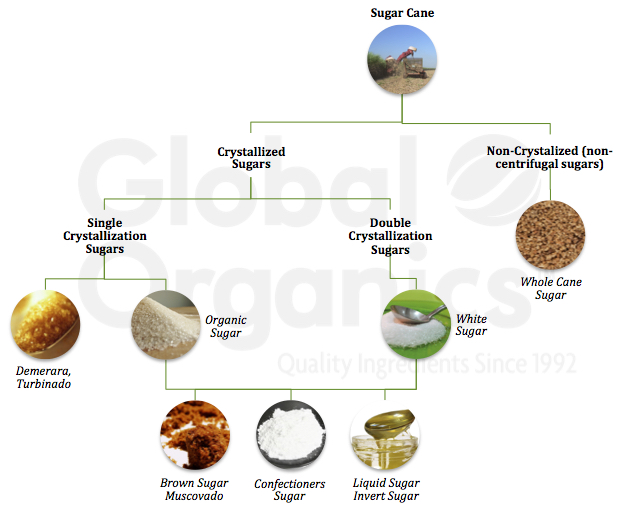Cane Sugar Processing: Conventional Approaches and Modern Innovations
Cane Sugar Processing: Conventional Approaches and Modern Innovations
Blog Article
An In-depth Review of the Wellness and Economic Implications of Walking Cane Sugar Processing on Regional Neighborhoods
Cane sugar handling plays a crucial duty in forming the financial landscape of neighborhood neighborhoods, using employment possibilities and boosting ancillary sectors. Nevertheless, the health and wellness implications associated with high sugar usage can not be neglected, as they add to increasing rates of excessive weight and diabetes. This nuanced dynamic invites a critical assessment of how neighborhoods can maximize economic gains while dealing with journalism health challenges they face. The exploration of sustainable techniques and educational campaigns might simply hold the secret to fixing up these clashing interests. What techniques might neighborhoods execute to achieve this balance?
Financial Benefits of Walking Cane Sugar Handling
Cane sugar processing offers substantial economic advantages that extend past the prompt agricultural industry. The growing and handling of sugarcane develop numerous job opportunities, from farming to manufacturing and circulation. This work generation not only sustains regional economic situations but also promotes area growth by giving steady revenue resources for family members.
Additionally, the sugar sector stimulates ancillary organizations, consisting of transportation, equipment supply, and packaging services (Cane Sugar Processing). As these sectors expand, they add to a much more robust economic structure, improving total community durability. The export capacity of processed walking stick sugar further intensifies financial advantages, positioning areas as affordable players in international markets
Investment in modern processing facilities can result in increased productivity and performance, therefore decreasing waste and enhancing resource usage. This change not only benefits the regional economic climate however also sustains sustainability initiatives by lessening ecological effects.
Moreover, the earnings created from cane sugar handling can be reinvested in local facilities, education, and healthcare, advertising alternative community growth. On the whole, the financial benefits of walking cane sugar processing are diverse, supplying a foundation for sustaining success in agricultural regions.
Health And Wellness Risks Related To Sugar Intake
Too much sugar usage poses substantial health and wellness risks that warrant major interest. High consumption of sugarcoated, especially from processed foods and drinks, has actually been connected to various wellness difficulties. One of the most pressing problems is excessive weight, as sweet diets add to an increased calorie intake without offering necessary nutrients. This extra can bring about metabolic disorders, consisting of type 2 diabetic issues, which has become progressively prevalent in both adults and children - Cane Sugar Processing.
Additionally, high sugar usage is related to cardiovascular condition. Elevated blood sugar levels can cause insulin resistance, a forerunner to numerous heart-related concerns. Additionally, sugar can have destructive impacts on dental wellness, causing tooth cavities and gum illness, as germs in the mouth flourish on sugar, producing acids that deteriorate tooth enamel.
Additionally, emerging research suggests a potential link in between high sugar usage and psychological wellness disorders, such as anxiety and stress and anxiety. As communities come to grips with these health risks, it comes to be necessary to promote understanding and urge much healthier nutritional selections. Attending to sugar consumption is important not just for specific health and wellness but likewise for the total well-being of neighborhood neighborhoods, stressing the requirement for comprehensive public health and wellness approaches.
Environmental Effects of Sugar Production
Regularly ignored in discussions about sugar's implications is the significant ecological influence of sugar production. The growing of sugarcane frequently necessitates extensive land use, leading to logging, loss of biodiversity, and disruption of local ecological communities. The conversion of woodlands and wetlands right into sugar plantations can cause environment devastation, harmful various types and modifying ecological equilibrium.
In addition, sugar production is resource-intensive, consuming substantial quantities of water for watering. This can result in exhaustion of regional water resources, negatively impacting both farming methods and area access to tidy water. In addition, making use of chemical fertilizers and chemicals in sugarcane farming can contribute to soil destruction and water pollution, as drainage from these chemicals enters close-by rivers and lakes, influencing aquatic life and human health and wellness.
The ecological impact reaches the handling phase, where power consumption and waste generation more exacerbate environmental concerns. Air contamination from shedding sugarcane areas, in addition to greenhouse gas discharges, contribute to climate modification. Therefore, the environmental ramifications of sugar manufacturing warrant significant factor to consider, urging stakeholders to adopt even more sustainable practices to mitigate these unfavorable results on regional environments and communities.
Task Production and Community Advancement
The ecological obstacles postured by sugar production are often counteracted by its possibility for financial advantages, especially in task development and neighborhood development. The walking stick sugar industry acts as a substantial resource of work in several backwoods, giving work across different ability degrees, from farming labor to processing and distribution functions. This work not just sustains individual families however additionally adds to the overall economic vitality of neighborhood neighborhoods.
Moreover, the establishment of sugar handling centers stimulates supplementary services, such as transportation solutions, equipment supply, and maintenance service providers. As these organizations grow, they develop extra jobs and boost local economic climates. The income produced from the sugar industry likewise causes increased tax obligation useful content incomes, which can be reinvested right into area services such as framework, healthcare, and education advancement.
Furthermore, the sugar market usually takes part in area advancement campaigns, such as supporting neighborhood colleges and health programs, thereby improving the top quality of life for homeowners. By fostering strong community connections and advertising economic development, the walking cane sugar processing field plays a crucial duty in uplifting neighborhood populaces, making it a crucial element of lasting growth strategies in sugar-producing regions.
Balancing Health and Economic Development
In browsing the complexities of walking stick sugar processing, a critical difficulty lies in stabilizing wellness considerations with financial growth. The sugar industry considerably adds to regional economies by generating work, boosting associated industries, and enhancing tax incomes. Nevertheless, the health and wellness effects connected with excessive sugar usage can result in chronic illness such as excessive weight, diabetes mellitus, and cardio issues, which can worry public wellness systems and diminish labor force performance.

Furthermore, regulative frameworks can play an essential function in assisting market methods towards even more lasting and health-conscious methods. By promoting partnership between federal government bodies, health and wellness organizations, and the sugar industry, areas can browse the dichotomy of wellness and financial development, ensuring that the advantages of walking stick sugar processing are equitably shared visit the website while focusing on public health and wellness.
Final Thought
In final thought, the handling of walking stick sugar presents both substantial economic advantages and significant health dangers for regional communities. While it cultivates work development and boosts local advancement, the involved wellness issues, specifically pertaining to weight problems and diabetic issues, demand a mindful harmonizing act. By promoting accountable usage and investing in neighborhood education and learning and lasting techniques, it is possible to take full advantage of economic advantages while minimizing negative health effects, therefore making sure a healthier future for regional populaces.
Furthermore, sugar can have detrimental effects on dental health, resulting in tooth cavities and gum disease, as bacteria in the mouth grow on sugar, generating acids that deteriorate tooth enamel.
Dealing with sugar consumption is critical not only for private health but also for the total wellness of local neighborhoods, highlighting the read what he said need for comprehensive public health approaches.
Frequently ignored in discussions regarding sugar's effects is the significant environmental impact of sugar production. The wellness effects associated with too much sugar intake can lead to chronic conditions such as obesity, diabetic issues, and cardio problems, which can burden public wellness systems and lessen labor force efficiency.

Report this page